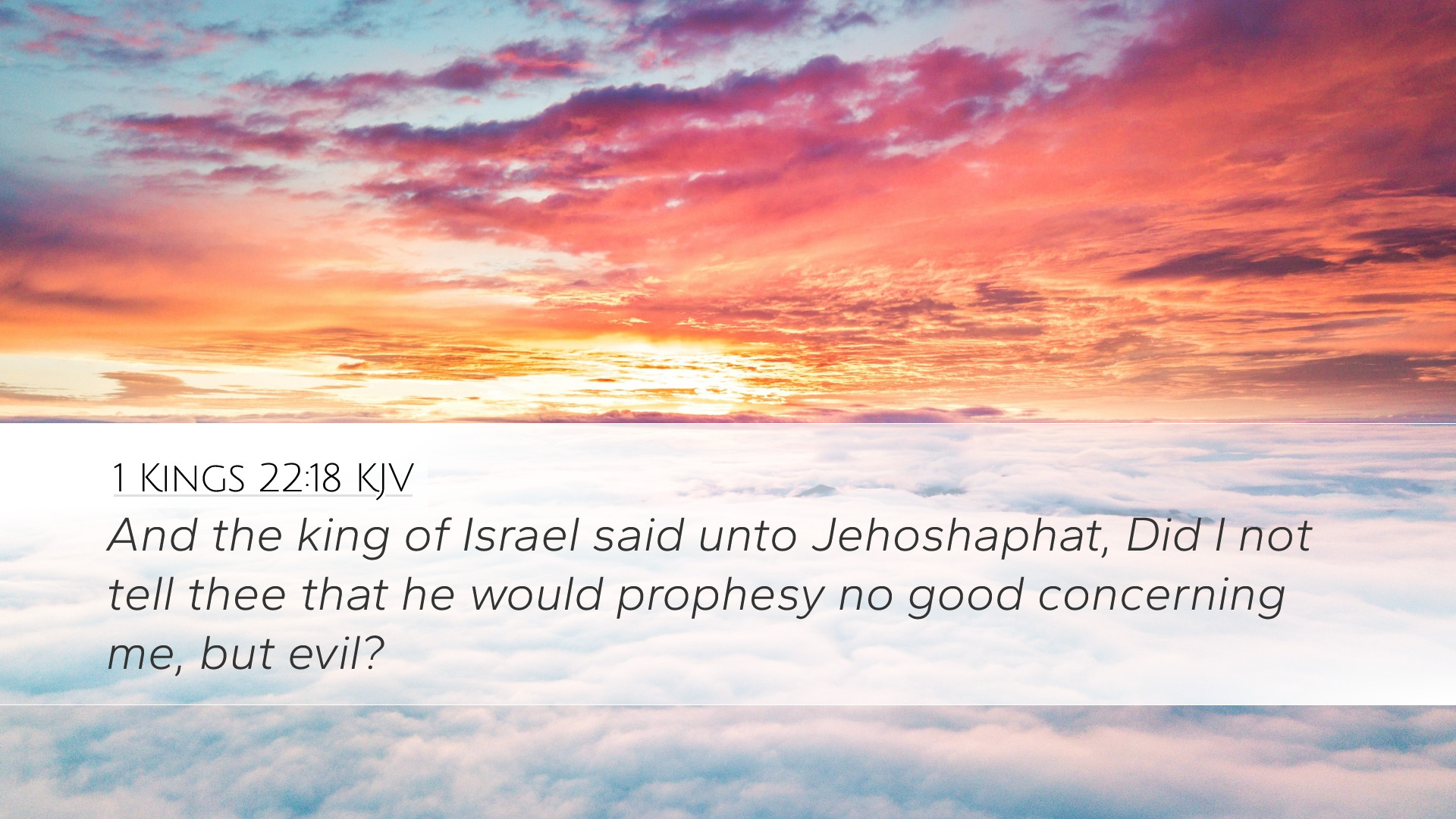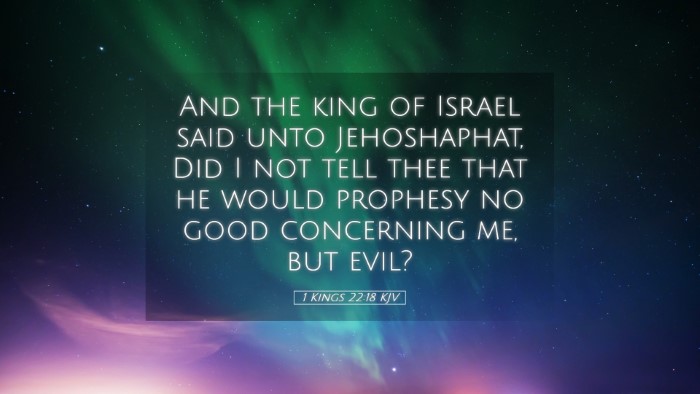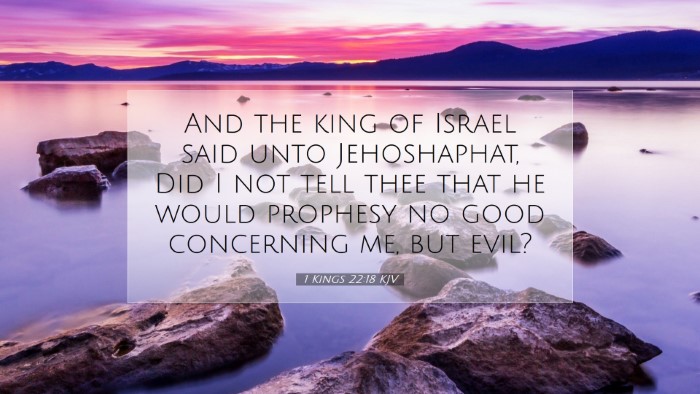1 Kings 22:18 - Verse Context
"And the king of Israel said unto Jehoshaphat, Did I not tell thee that he would prophesy no good concerning me, but evil?"
This verse highlights the tension between King Ahab of Israel and the prophet Micaiah. Ahab, notorious for his unfaithfulness to God, stands at a crossroads as he seeks counsel before engaging in war against Ramoth-gilead. The dialogue reflects the profound implications of prophetic truth amidst political machinations.
Introduction
This commentary explores the complexities of prophecy, kingship, and divine will as demonstrated in 1 Kings 22:18. Notably, it delves into the interactions between Ahab and Jehoshaphat, the implications of their respective loyalties, and the broader celestial dynamics at play.
Context and Historical Background
Ahab was the seventh king of Israel and reigned during a tumultuous period characterized by idol worship and political intrigue. His alignment with Jehoshaphat, the king of Judah, exemplified a significant diplomatic relationship. This alliance, however, was fraught with spiritual conflict that arose from Ahab's devotion to Baal, contrasting sharply with Jehoshaphat's commitment to Yahweh.
Commentary Excerpts
-
Matthew Henry:
Henry emphasizes Ahab's recognition of Micaiah's prophetic role, giving insight into Ahab's self-awareness regarding his sinful lifestyle. He points out that Ahab was expecting truth but was terrified by the prospect of evil predictions due to his unrepentance. This duality between seeking assurance and facing the uncomfortable truth is a key theme.
-
Albert Barnes:
Barnes regards Ahab's reaction as indicative of a leader unwilling to confront the consequences of his actions. By anticipating Micaiah's message, Ahab demonstrates an understanding that the prophetic word can reveal divine judgment upon his idolatry. Barnes illuminates the importance of discernment in royal counsel, particularly amid false prophets who deliver comforting lies at the expense of truth.
-
Adam Clarke:
Clarke provides a detailed interpretation, noting the historical context of Ahab's opposition to true prophetic voices. He indicates that Ahab's lamentation of Micaiah's predictions reveals a deeper spiritual conflict as he sought out prophets who would align with his desires rather than divine will. Clarke also highlights the broader theological implications of Ahab's actions, warning against the danger of rejecting genuine divine counsel in favor of misleading, favorable reports.
The Theological Implications
This verse not only provides a dramatic moment in the narrative of Israel's monarchy but also serves as a critical reminder of the nature of prophecy. Prophecy is not merely foretelling the future but proclaiming God's truth, which often stands in stark contrast to human desires and leadership. Ahab's expectations juxtapose the reality of divine revelation, demonstrating the moral responsibility inherent in receiving God's word.
Life Application
For pastors, students, and theologians, Ahab's story serves as a poignant message about the importance of seeking God's counsel over worldly approval. The interaction with Jehoshaphat explores questions of leadership, partnership, and fidelity to God's commands, urging believers to prioritize truth even in the face of opposition or discomfort. This verse calls the faithful to discernment, reminding them that while God's truth may not always be palatable, it is ultimately aimed at their repentance and restoration.
Conclusion
1 Kings 22:18 is a multifaceted verse that encapsulates the struggles between divine truth and human inclination. The insights gleaned from respected public domain commentaries provide a rich tapestry of understanding, benefiting readers as they navigate the complexities of faith, leadership, and prophetic authenticity. As believers engage with this passage, they are encouraged to reflect on their own responses to truth and the weighty implications of prophetic voices in their lives.


